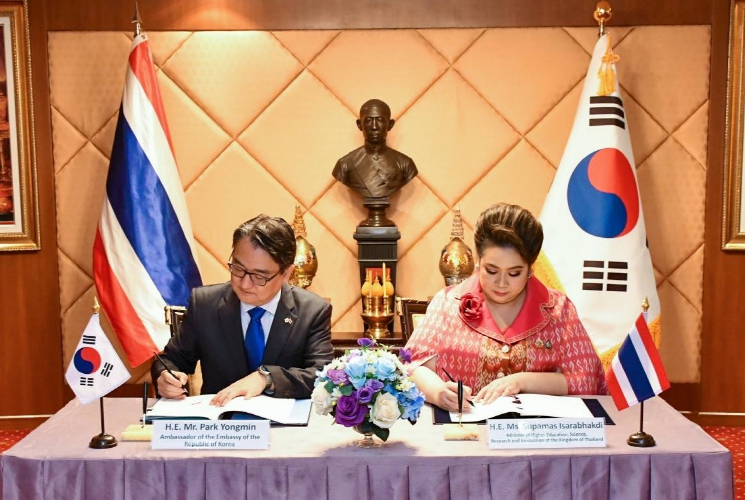
On
March 21, 2025, the "Agreement on Cooperation in the Peaceful Uses of
Nuclear Energy between the Government of the Republic of Korea and the Government
of Thailand" was officially signed in Bangkok. Ambassador Park Yong-min of
the Republic of Korea to Thailand and Supamas Isarabhakdi, the Minister of the
Ministry of Higher Education, Science, Research and Innovation of Thailand,
signed the agreement, marking Thailand as the 30th country to enter into a
nuclear cooperation agreement with Korea.
Both
countries, as members of the International Atomic Energy Agency (IAEA) and
parties to the Treaty on the Non-Proliferation of Nuclear Weapons (NPT), have
prioritized nuclear safety and environmental protection as key objectives. By
leveraging nuclear technology for peaceful purposes, the two nations aim to
foster socio-economic development, which prompted the signing of the agreement.
Through
this partnership, Korea and Thailand plan to enhance cooperation in several key
areas, including nuclear research and technology development, the construction
and operation of nuclear power plants and research reactors, and the use of
radioactive isotopes in various fields such as industry, agriculture, and
medicine. The agreement also covers radioactive waste management, nuclear
safety, human resources development, and public awareness. To ensure the
effective implementation of these initiatives, both countries will establish a
joint committee and initiate specific activities such as technological
exchanges, joint research, expert training, and the transfer of equipment and
technology.
The
Korea-Thailand Nuclear Cooperation Agreement serves as the institutional framework
for the peaceful use of nuclear energy between the two countries. Korea, with
its advanced nuclear technology and expertise, will support the development of
Thailand's nuclear infrastructure. In turn, Thailand aims to promote industrial
and scientific advancement through the expanded peaceful use of nuclear energy.
This collaboration is expected to foster mutually beneficial outcomes and
strengthen bilateral ties between the two nations.








